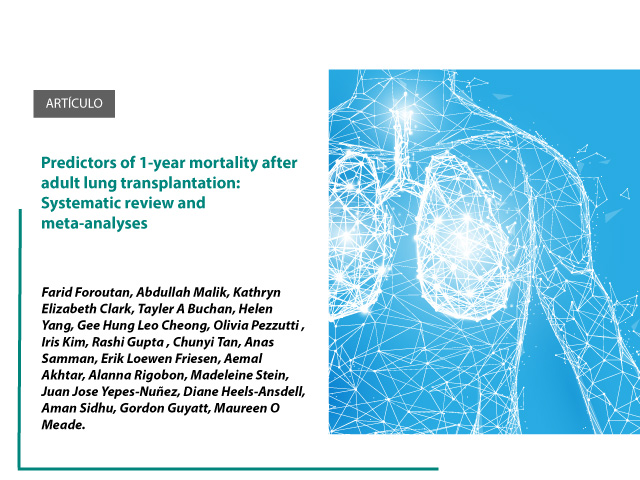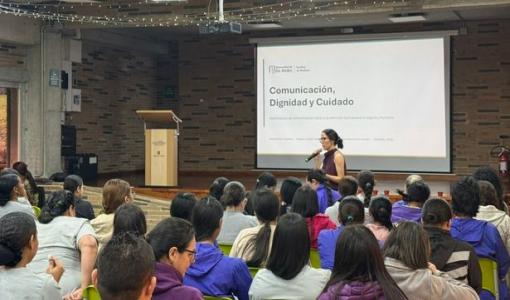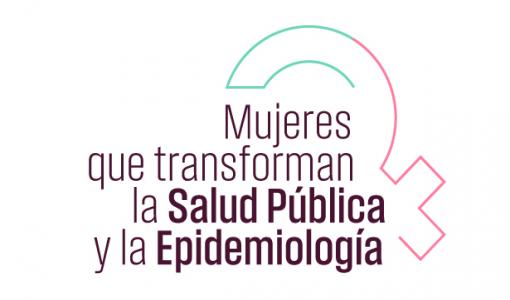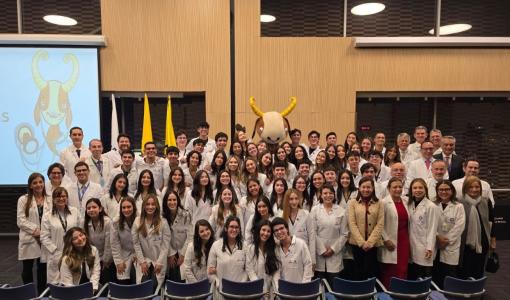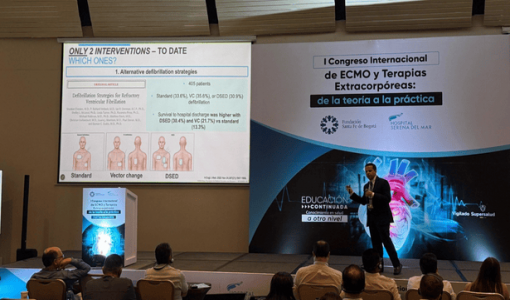[Artículo]
Los invitamos a leer el siguiente artículo que contó con la participación de la Dr. Juan José Yepes Nuñez
Abstract
Background: Prognostic factors in lung transplantation are those variables that are associated with transplant outcomes. Knowledge of donor and recipient prognostic variables can aid in the optimal allocation of donor lungs to transplant recipients and can also inform post-operative discussions with patients about prognosis. Current research findings related to prognostic factors in lung transplantation are inconsistent and the relative importance of various factors is unclear. This review aims to provide the best possible estimates of the association between putative prognostic variables and 1-year all-cause mortality in adult lung transplant recipients.
Methods: We searched 5 bibliographic databases for studies assessing the associations between putative predictors (related to lung donors, recipients, or the transplant procedure) and 1-year recipient mortality. We pooled data across studies when justified and utilized GRADE methodology to assess the certainty in the evidence.
Results: From 72 eligible studies (2002-2020), there were 34 recipient variables, 4 donor variables, 10 procedural variables, and 7 post-transplant complication variables that were amenable to a meta-analysis. With a high degree of certainty in the evidence only post-transplant need for extra-corporeal membrane oxygenation (ECMO) (HR 1.91, 95% CI 1.79-2.04) predicted 1-year mortality. No donor variables appeared to predict transplant outcome with high or even moderate certainty.
Conclusion: Across the range of contemporary donors and recipients that clinicians accept for lung transplantation, this review, with high certainty, found 1 prognostic factor that predicted 1-year mortality, and 37 additional factors with a moderate degree of certainty. The lack of prognostic significance for some widely accepted factors (e.g., donor smoking, age) likely relates to existing limits in the range of these variables at the time of donor and recipient selection.
Keywords: donor; lung transplant; meta-analysis; mortality; prognosis; recipient; systematic review.

